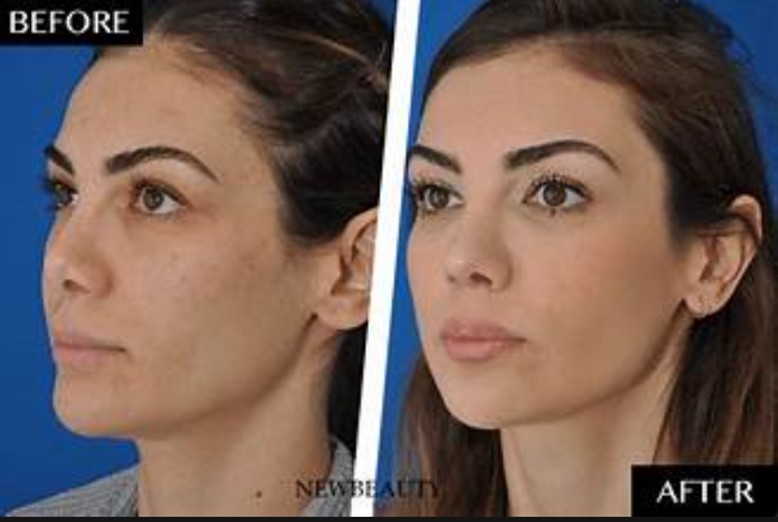HEALTH
When to Consider a Second Nose Job Surgery

You’ve already decided to undergo a nose job, aiming for improved aesthetics or functionality. But what happens when the results aren’t what you expected or complications arise? Understanding when to consider a second nose job or revision rhinoplasty is crucial. This article delves into key factors that might lead you to this decision.
The first nose job typically sets expectations for aesthetics and function. However, the outcome may sometimes not align with your expectations, or complications might arise. These could range from aesthetic dissatisfaction to functional issues like breathing difficulties.
When to Consider a Revision Rhinoplasty
Considering a second surgery isn’t a decision to take lightly. It’s essential to allow enough time for complete healing, typically a year, to see the final results of the first surgery. Revision becomes a consideration when there are unresolved cosmetic issues or functional impairments.
Assessing the Need for a Second Surgery
Deciding on a second nose job, also known as revision rhinoplasty, requires careful consideration. You shouldn’t make a decision hastily or based solely on initial dissatisfaction. Here are key factors to consider:
- Physical Assessment: Examine the physical outcomes of your first surgery. Are there visible irregularities, asymmetries, or scarring that affect your appearance? Sometimes, minor imperfections can be addressed without surgery, so it’s crucial to understand the extent of physical changes needed.
- Functional Assessment: Beyond aesthetics, assess if there are any functional issues like breathing difficulties. The first surgery may compromise nasal function, necessitating a medical revision.
- Emotional and Psychological Impact: Understand how your first surgery’s results affect your self-esteem and mental well-being. Are your concerns cosmetic or impacting your daily life and confidence?
- Consultation with a Specialist: A consultation with a rhinoplasty specialist is crucial. They can provide an objective assessment, help set realistic expectations, and advise if a revision is necessary or other options are available.
- Realistic Expectations: It’s important to have realistic expectations. A second surgery can offer improvements, but it also comes with risks and limitations. Discussing these thoroughly with your surgeon can help align your expectations with what is surgically achievable.
Risks and Complications of Revision Rhinoplasty
Every surgery comes with risks, and revision rhinoplasty is no exception. The chances can be higher due to scar tissue and changes from the first surgery. Being aware of potential complications and discussing them with your surgeon is vital.
Choosing the Right Surgeon for Your Second Nose Job
Selecting the right surgeon for your revision rhinoplasty is the most crucial step in your journey. Here’s how to ensure you choose the best professional for your needs:
- Specialization and Experience: Look for a surgeon who specializes in revision rhinoplasty. Experience in this field is key, as revision surgeries are typically more complex than primary procedures.
- Credentials and Certifications: Verify the surgeon’s credentials. Ensure they are board-certified and have a good standing in medical communities. Credentials are a testament to their commitment to meeting high standards in their field.
- Before-and-After Gallery: Review the surgeon’s portfolio of before-and-after photos, especially those related to revision procedures. This can give you a realistic idea of their skill level and the results they achieve.
- Patient Testimonials and Reviews: Read reviews and testimonials from other patients who have undergone revision rhinoplasty with the surgeon. Patient experiences can offer valuable insights into what you can expect.
- Consultation and Rapport: During consultations, assess how well the surgeon listens to your concerns and how they communicate. A good surgeon should make you feel comfortable, understood, and confident.
Preparing for Your Second Surgery
Preparation for your second nose job is a critical phase that contributes to the success of the surgery. Here’s how to prepare effectively:
- Medical Evaluation: Undergo a comprehensive medical evaluation to ensure you are a suitable candidate for revision surgery. This may include blood tests, physical examinations, and possibly imaging studies.
- Understanding the Procedure: Familiarize yourself with the details of the proposed surgical procedure. Knowing what to expect can help reduce anxiety and set realistic expectations.
- Setting Realistic Expectations: Discuss with your surgeon what is realistically achievable. Understanding the limitations and possibilities can help in mentally preparing for the outcome.
- Pre-Surgery Instructions: Adhere strictly to pre-surgery instructions provided by your surgeon. This may include guidelines on medication, fasting, and other preparatory steps.
- Arranging for Recovery: Plan for your recovery period. Arrange for time off work and assistance at home, and create a comfortable recovery environment. Preparing for post-operative care is crucial for a smooth and effective healing process.
- Emotional Preparedness: Feeling a mix of emotions before a revision surgery is normal. Consider speaking with a counselor or joining support groups to navigate through any anxiety or emotional concerns you may have.
Recovery from a second nose job might differ from your first experience. There might be more swelling, and the healing process could take longer. Following your surgeon’s advice on aftercare is essential for optimal recovery.
Cost and Insurance Considerations
Nose job Turkey price can be more expensive than primary surgery. Understanding the costs involved and exploring insurance options or financing plans is important for making an informed decision.
Before opting for another surgery, consider non-surgical alternatives like fillers or adjustments through less invasive procedures. Weighing these options’ pros and cons can help make a more informed decision.
Deciding on a second nose job is a personal and significant decision. By understanding the considerations, risks, and preparations involved, you can make an informed choice that aligns with your goals and well-being.










